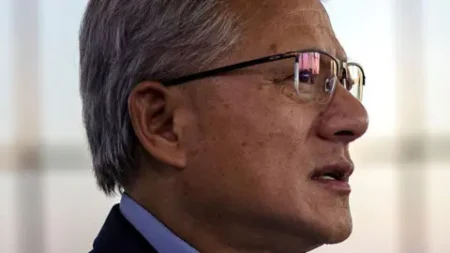In an exciting advancement in artificial intelligence technology, a British company has developed a new voice-cloning tool, dubbed Express-Voice, designed to accurately replicate various regional accents across the United Kingdom. This innovative tool aims to outperform its competitors in the US and China, particularly in delivering authentic-sounding voices that reflect the diverse linguistic characteristics of British accents.
Historically, many AI voice solutions have been primarily trained on data sourced from North American and southern English speakers. Consequently, artificial voices generally exhibit a homogeneity that may overlook the rich variety of accents present within the UK. To address this gap, Synthesia, the firm behind Express-Voice, dedicated a year to assembling a comprehensive database of UK voices. This involved recording individuals in professional studio settings and gathering data from various online sources, ensuring that the tool could accurately represent the unique characteristics of different regional accents.
The capabilities of Express-Voice extend beyond simple voice replication; it can generate synthetic voices or clone real voices for various applications, including training materials, sales support, and corporate presentations. The feedback from Synthesia’s customers has emphasized the importance of preserving regional representations in synthesized voices. According to Youssef Alami Mejjati, the Head of Research at Synthesia, individuals—including company executives and everyday users—desire that their accents are faithfully captured in the technology.
He further pointed out that this need for authenticity extends beyond British accents, with French-speaking users reporting that many synthetic French voices seem to originate from Canada rather than France. This discrepancy can be traced back to the fact that many companies developing voice technologies are based in North America and rely primarily on datasets that reflect these demographics.
The challenge of accurately mimicking less common accents lies in the scarcity of recorded material available for training AI models. As Mr. Mejjati noted, these accents are often the hardest to replicate. This limitation is evidenced by instances where voice-activated AI solutions, such as smart speakers, struggle to comprehend a variety of accents, adding another layer of complexity to the development of inclusive technology. An example of this issue surfaced in internal documents from West Midlands Police, which expressed concerns about how well voice recognition systems could interpret the Brummie accent.
Conversely, a US-based startup named Sanas is tackling accent bias from a different angle. This firm is in the process of creating tools designed for call center environments, which would “neutralize” the accents of employees from India and the Philippines in order to mitigate accent-related discrimination experienced by those workers in customer interactions.
While advancements in AI voice recognition hold great potential, concerns persist regarding the preservation of languages and dialects, particularly as the digital landscape evolves. UNESCO estimates that out of the more than 7,000 languages still spoken today, nearly half are considered endangered. Despite some languages having an online presence, only a minimal percentage benefit from extensive AI support, as highlighted by Karen Hao in her book, “Empire of AI.”
As AI technologies improve, there is a growing concern that they may contribute to the homogenization of speech. Expert Henry Ajder remarked that while better models will increase efficiency, they may also be utilized by malicious actors. It is noteworthy that Synthesia’s offerings will not be available for free upon release and will include safeguards against hate speech and explicit content. However, there is an abundance of free, open-source voice-cloning tools that are more easily accessible and carry fewer restrictions, raising safety questions in this rapidly evolving field.
For instance, earlier this month, incidents involving AI-generated voice messages mimicking US Secretary of State Marco Rubio were reported, illustrating the potential for misuse. Ajder emphasized the swift evolution of the voice cloning landscape in recent months, underscoring significant implications for security and ethical considerations in technology deployment.
As Synthesia prepares to launch its new product in the coming weeks, the conversation surrounding the implications of advanced AI in voice cloning remains crucial. The balance between innovation, ethical considerations, and the protection of cultural diversity will shape the future of voice technology in a globalized digital environment.











